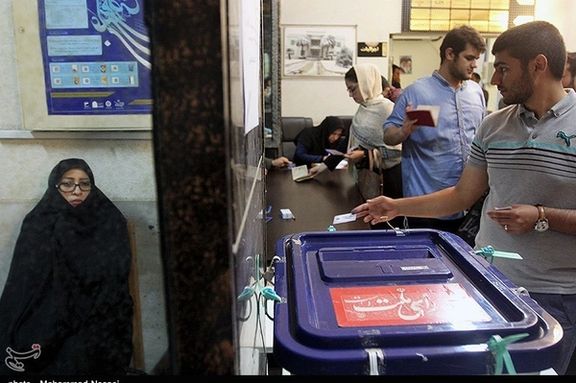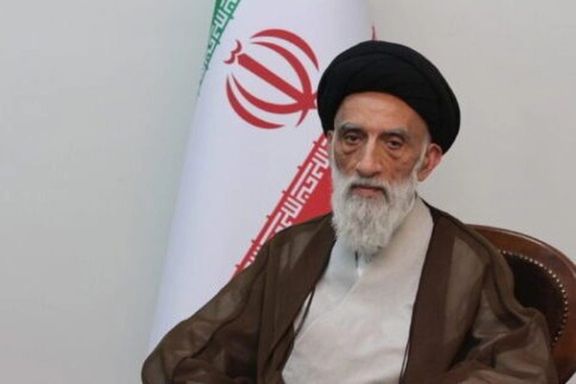Iran’s Regime Scrambles To Get People To Vote

As the March 1 elections for the parliament and the Assembly of Experts draw near, Iranian officials are employing various arguments to persuade the hesitant electorate not to abstain from voting.

As the March 1 elections for the parliament and the Assembly of Experts draw near, Iranian officials are employing various arguments to persuade the hesitant electorate not to abstain from voting.
“All people, with any [political] inclination and belief, should enthusiastically participate in the elections," the Friday Imam of Yazd, the capital of a province of the same name in eastern Iran, told his congregation Friday.
Naser Mohammadi resorted to the argument that refusing to vote plays into the hands of "the enemy." He urged people to cast their ballots as a means of thwarting the plans of adversaries.
Other officials, such as Reza Deylami, the cultural deputy of the Islamic Propaganda Organization, have echoed similar sentiments, asserting that Iranian participation in the elections will serve as a blow to "the enemies" – referring to the United States, Western countries, and Israel.
"The enemies should await to be slapped in the face by the Iranian nation at ballot boxes,” he said. “We will avenge the blood of the martyrs of Kerman [bombing], Ghasem Soleimani, and the Resistance Front (Iran's allies in the region) at the ballot box," he added.

As in every election and following the decree of Supreme Leader Ali Khamenei other regime officials such as Mostafa Mousavi-Esfahani, a member of the Assembly of Experts, insist that voting is a religious duty and the wish of those who sacrificed their lives for the country.
Despite differing political affiliations, officials and regime supporters have converged on the belief that voter turnout, rather than individual candidate selection, holds paramount importance in the elections. They openly admit that it is the regime’s legitimacy which is at stake.
Recently, Supreme Leader Ali Khamenei once again appealed to the electorate to vote for the candidates the system has approved and claimed that the United States and other “enemies” desire a low turnout.
This apprehension regarding low voter turnout stems from the regime's longstanding assertion that high participation validates its legitimacy and signifies victory over external adversaries.
Candidates in the upcoming elections have undergone extensive vetting by various security bodies, including the Revolutionary Guards (IRGC) intelligence organization and the Ministry of Intelligence. This process ensures the exclusion of political rivals from the competition.
Differences among candidates are quite minimal. Many former insiders, not only reformists but also most moderate conservatives, have been barred from running.
A recent survey by the Netherlands-based Gamaan institute found that nearly three quarter of all eligible voters who responded to its poll had decided not to vote including 39 percent of those who had voted in the parliamentary elections of 2020.
The same survey found that if a referendum was held, nearly 75 percent of its respondents would say no to the Islamic Republic.
Apathy among the general population seems to be so deep that many social media users with strong anti-regime sentiments apparently see no need to try to convince others to stay away from the ballots.
Hardliner regime supporters, however, seem to be very persistent in their efforts to convince people that their vote matters. “Those we prefer will be elected if you don’t vote. So, whose loss will it be, mine or yours?” a regime supporter tweeted with the hashtags “national power” and “people’s choice”.
For the first time in Iranian elections, voters’ birth certificates will not be stamped, and they can use other forms of identity documents such as passports to vote.
Head of Iran's civil registry organization, Hashem Kargar, who is a member of the election taskforce confirmed Friday that the practice of stamping birth certificates has been scraped but claimed that the organization has provided electronic data to the interior ministry to authenticate voters’ identity papers at the ballots.
Some social media users allege that accepting other forms of identity documents and scrapping the practice of stamping birth certificates without appropriate electronic infrastructures is meant to allow regime supporters to cast multiple votes.